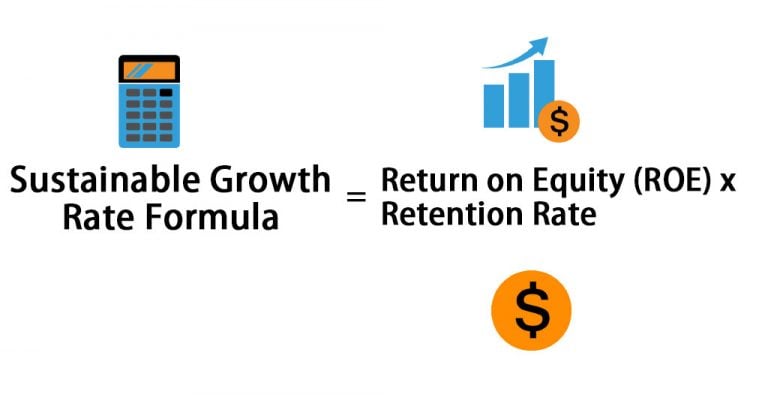Table of Content
- Home Equity Loan vs. Cash-Out Refinance When Your Home Is Paid Off
- #2. Home equity line of credit (HELOC)
- Pros and cons of home equity loans
- Is it worth paying the closing costs to consolidate my first mortgage and my home equity loan?
- How to apply for a home equity loan
- Statement of Financial Position: Definition and All You Need To Know
- What do you want to do with money?
With that said, this home equity loan option is not nearly as elusive as it seems — and there are a number of ways to access your home equity. Below, we’ll examine three ways to get usable equity out of your home and why this equity can be the key to financial freedom. Your home’s equity increases as you pay down your mortgage and when the property’s value increases.

Borrowing against your home carries risks that you'll want to consider. Here’s what you need to know to use a HELOC for a residential property purchase. In the last few years, the Federal Reserve has lowered the prime interest rate back to 4%. Finally the central bank stopped after seventeen key interest rate hikes in a row.
Home Equity Loan vs. Cash-Out Refinance When Your Home Is Paid Off
She has written for various publications, such as Fortune, InStyle and Travel + Leisure, and she also worked in social media and digital production at NBC Nightly News with Lester Holt and NY1. She graduated from the Craig Newmark Graduate School of Journalism at CUNY and Villanova University. When not checking Twitter, Alix likes to hike, play tennis and watch her neighbors' dogs. Now based out of Los Angeles, Alix doesn't miss the New York City subway one bit. Home equity is the calculation of a home's current market value minus any liens attached to that home. Investopedia requires writers to use primary sources to support their work.

The cash you collect from a cash-out refinance isn't considered income. They also often include an appraisal to determine the market value of the property, an application fee for processing the loan, points—one point is equal to 1% of the loan—and an annual maintenance fee. Sometimes lenders will waive these, however, so be sure to ask about them. With any type of refinancing, you should plan to continue living in your home for a year or more. It can be a good idea to do a rate-and-term refi if you can recoup your closing costs with a lower monthly interest rate within about 18 months. However, you shouldn't see your house as a good source of short-term capital.
#2. Home equity line of credit (HELOC)
Having a paid-off mortgage also makes it easier for lenders to calculate how much equity you have in your home and how large a loan they might be willing to offer you. However, a home equity loan may be somewhat less risky if you aren't also carrying a regular mortgage because you will have less debt overall. You'll also be at less risk of finding yourself underwater—a situation in which falling home prices leave you owing more than your home is worth. Being underwater can make it impossible to sell your home unless you are able to come up with enough money from other sources to fully pay off your loans.

Whether you recently purchased a house or have been owning one for a while, you can tap into the equity in your home anytime. There’s no specific timeframe for taking equity out of your home, provided that you’ve built up enough equity. Many or all of the companies featured provide compensation to LendEDU. These commissions are how we maintain our free service for consumers. Compensation, along with hours of in-depth editorial research, determines where & how companies appear on our site. Home equity loans, HELOCs, and home equity investments are three ways you can take equity out of your home without refinancing.
Pros and cons of home equity loans
With a HELOC, you get a line of credit from the lender that you can draw on as needed, rather than a single lump sum at the outset as is the case with a home equity loan. If you don't actually need money now but want future access to credit at a lower interest rate than a traditional credit card, a HELOC may be a better option for you. One downside is that HELOCs usually have a variable interest rate, so when interest rates are rising, your payments can increase significantly. If so, Unison can help you unlock up to 17.5% equity in your home without having to make monthly payments or pay interest.

You just have to be sure that you can repay the entire balance by the time that the repayment period expires. Cash-out refinances replace your existing mortgage, so the terms will change. You can shorten or lengthen the amount of time you have to repay your new mortgage. Be sure to factor in closing costs, which can range from 2% to 5% of the new loan amount. Once the three-day window has passed, you'll have to repay the loan to cancel it. You can pay it back directly to the lender or sell your house to repay the loan alongside the primary mortgage -- assuming you have enough savings.
Is it worth paying the closing costs to consolidate my first mortgage and my home equity loan?
Another advantage is that lenders typically charge lower interest rates for refinances than other types of loans on this list. That’s because they hold first lien position with a refinance, which means their debt gets first priority in the event of a default and foreclosure. Get Forbes Advisor’s ratings of the best mortgage lenders, advice on where to find the lowest mortgage or refinance rates, and other tips for buying and selling real estate. Unlike a cash-out refinance, home equity loans don’t replace your mortgage, which is beneficial for people who have a low interest rate and don’t want to change it by refinancing.
Don’t be concerned about the dangers, interest rates, or application requirements inherent in the strategies we’ve explored thus far. A sale-leaseback scheme is one of the most effective home equity loan choices for owners who want to convert their equity. Plugging your numbers into our mortgage calculator below will show you which option saves you the most money over the life of each loan. If your home is paid off, however, you don't have a mortgage to repay, so the full amount of the loan becomes yours to do with as you please. Not having a mortgage only increases the amount you can borrow with a home equity loan. It’s important to note that lenders are more interested in the amount of equity you already own than your creditworthiness.
Using your home equity to pay for home repairs or debt consolidation can be a handy and low-cost option to borrow significant sums at low-interest rates. However, the best sort of loan relies on your circumstances and how you want to spend the funds. One of the most prominent home equity loan alternatives is a home equity line of credit, sometimes known as a HELOC in the banking sector. These two are frequently compared, but there are significant differences between a home equity loan and a HELOC.
For example, if you need a large amount of cash but don’t want to change your first mortgage, a home equity loan might be a more attractive option. On the flip side, borrowing against your home for unnecessary expenses or vacations are usually not advisable as you’re racking up debt using your home as the collateral. HELOC’s also tend to have lower closing costs than cash-out refinances, and the interest rates on a HELOC are lower than average credit card rates. For all practical purposes, a home equity sharing agreement is a lot like a balloon-payment loan. You’re facing a deadline to pay back the entire investment and a percentage of your home’s appreciation.
Both, albeit in slightly different methods, allow you to borrow against your home equity. You receive a lump-sum payment and then return the debt monthly over time via a home equity loan. Home equity loans enable homeowners to use the value of their homes to obtain cash fast and cheaply. Borrowing against your home’s equity may be worthwhile if you’re confident you’ll be able to make timely payments, and especially if you utilize the loan for upgrades that boost the value of your home.

Compared to rate-and-term refinancing, cash-out loans usually come withhigher interest rates and other costs, such as points. Cash-out loans are more complex than a rate-and-term and usually have higher underwriting standards. A high credit score and lower relativeloan-to-value ratiocan mitigate some concerns and help you get a more favorable deal. To comprehend a cash-out refinance, think of it as a way to replace your current home mortgage with a larger one. The difference in value will go directly into your pocket with this choice, and you can use the funds as needed. It’s essentially re-starting the mortgage process because you’ll be in charge of new interest rates, loan term changes, and payment schedules.

No comments:
Post a Comment